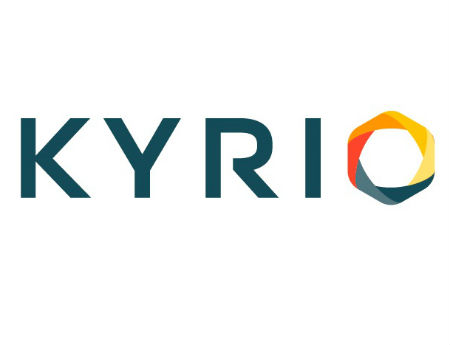CableLabs Unit Takes Aim At Network Virtualization
The smarter way to stay on top of the multichannel video marketplace. Sign up below.
You are now subscribed
Your newsletter sign-up was successful

With twosessions dedicated to it here today at INTX, network virtualization is a hot topic for service providers and their array of vendors.
Kyrio, the recently rebranded CableLabs for-profit spin-off, has also been taking aim at network functions virtualization (NFV) and software-defined networks (SDN) in the form a new interoperability lab based at the organization’s Louisville, Colo., and Sunnyvale, Calif., facilities.
Multichannel News recently caught up with Phil McKinney, CEO of CableLabs, and Mitch Ashley, president and general manager of Kyrio, to learn more about Kyrio and the aims and plans for the new lab and why they think it will be important not just to cable, but to other industries as well.
Multichannel News: In February you rebranded your for-profit NetworkFX subsidiary as Kyrio as it pursued areas like wireless roaming and WiFi testing. And recently you announced that it will open an SDN]/NFV interoperability lab. Can you offer a bit more detail on the goals of that new effort?
Mitch Ashley: Kyrio is a wholly owned subsidiary of CableLabs and what we're doing is building off the phenomenal technology transfer model that CableLabs has had for the cable industry of creating technologies and innovations that show up in vendor products and show up in cable operator networks and in customer homes.
NetworkFX (the former brand of the Kyrio spin-off) was started originally around taking the PKI (public key infrastructure) service that CableLabs had done for the entire cable industry -- coming up on over 500 million security keys for devices like cable modems, CableCARDs... That sort of proved out the model for Kyrio. In January we announced the rebranding of the company but also that we were expanding into other lines of business, like wireless testing.
[For the NFV/SDN lab], we're providing a vendor-neutral laboratory environment where hardware manufacturers, software providers and even chip manufacturers can come in. Much like we do with cable modems and other technologies, now we can interoperable with each other and go through test deployment scenarios, do basic testing across devices in a friendly environment where they know that the confidentiality of their information is maintained. What we focused on was how do we help those vendors get their products to market in a mutli-vendor environment.
The smarter way to stay on top of the multichannel video marketplace. Sign up below.
It's pretty difficult for one manufacture to get the bevy of SDN and NFV devices into their labs to do testing with. We provide that platform, where they can maintain an ongoing presence in our interop lab or do some remote testing. And we'll do hosted events -- like the OPNFV interop...on May 9.
We can also provide remote access to both hardware and software manufacturers and provide new builds and loads onto their equipment and test that across multiple hardware manufacturers and software solutions.
Phil McKinney: The SDN and NFV worlds are moving fast. We see it having a great opportunity to have an impact on the MSOs but the overall cost of network infrastructure and encourage the vendors to...move quickly. That's why we brought that expertise and opened it up to anybody and everybody not related or tied to cable operators.
MCN: Will there be a qualification stamp that comes out of this like CableLabs does with DOCSIS?
PM: Even on the cable side when we do an interop, there's no certification or stamp. Anything that happens inside the interop, stays inside the interop. But there are still some gaps in the NFV world around interoperability. They can get access to a set of configurations that they wouldn't be able to afford on their own in order to do a better job of bringing the entire industry together. The focus, step one, is just on interoperability.
MCN: How would you characterize the cable industry's work with SDN and NFV with respect to competing industries? Are they in lock-step, ahead of the curve, behind the pack?
PM: I can tell you that most of the major MSOs are keenly interested in taking advantage of the SDN and NFV worlds. The main driver there is can you speed up the process of deploying new products and new services.
The bigger operators are very involved in SDN and NFV; they are all having discussions with their vendor suppliers. Many of them have their own labs set up. Some are doing deployments...but it's in the early days. That's why I think there's so much excitement about the interop labs.
In this case, we're trying to bring everyone along together and it actually shortens the timeframe of going from, this is a nice concept, one in which I can actually commercially deploy this in a broad-based format.
